The executive director of the Tanzania National Bureau of Standards (TBS) has issued a formal official confirmation document that this conformity assessment procedure (PVOC) can be implemented and executed. All controlled products covered by the PVOC program must be inspected. The products must comply with Tanzanian national standards and other recognized standards, and on this basis, a product certificate of conformity (COC) must be issued.
Tanzania will implement the COC, the English name: Certificate of Conformity, from February 1, 2012, which is a pre-shipment inspection. All products listed in the Tanzania Controlled Catalogue need to apply for COC before shipment, otherwise they will not be able to clear customs at the port of destination. Unlike the previous Tanzania shipment inspection, Tanzania COC needs to be applied for before shipment. Once the cargo has left the port, it will not be able to replenish the COC. In addition, Tanzania COC also needs to submit product inspection reports and other materials for document review. Only after passing the review can they arrange pre-shipment inspections and obtain COC certificates.
The Certificate of Conformity (COC) is a necessary document to ensure the smooth customs clearance of goods. This certificate proves that the product complies with relevant Tanzanian technical regulations and national, regional and international standards. Failure to submit the conformity certificate issued by the inspection agency may result in delays in customs clearance or fines or even the goods being returned to the exporting country.
Details
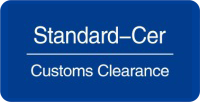

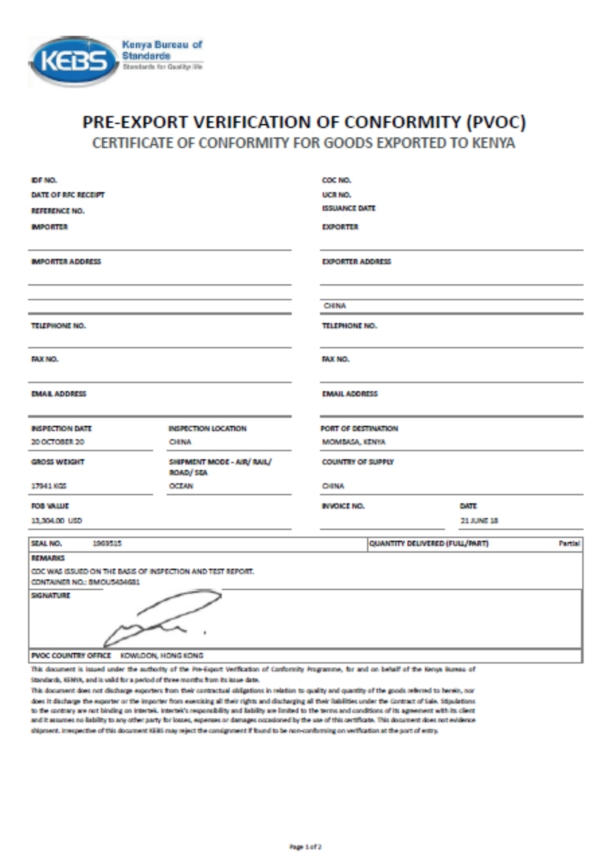
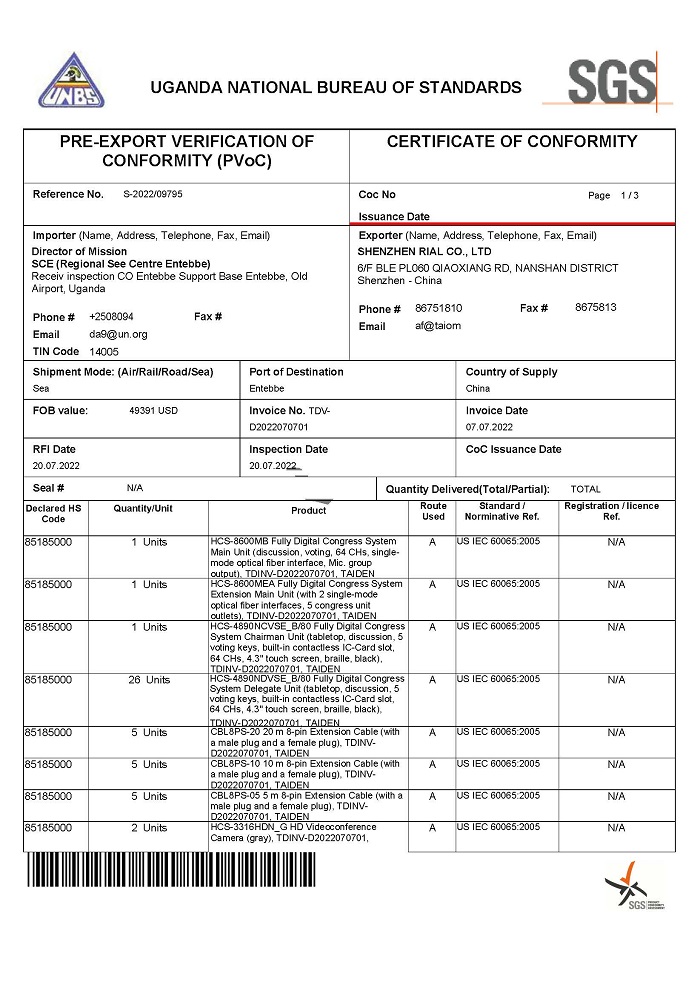
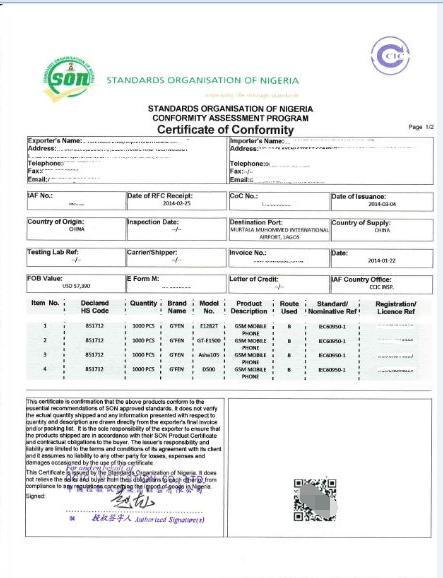

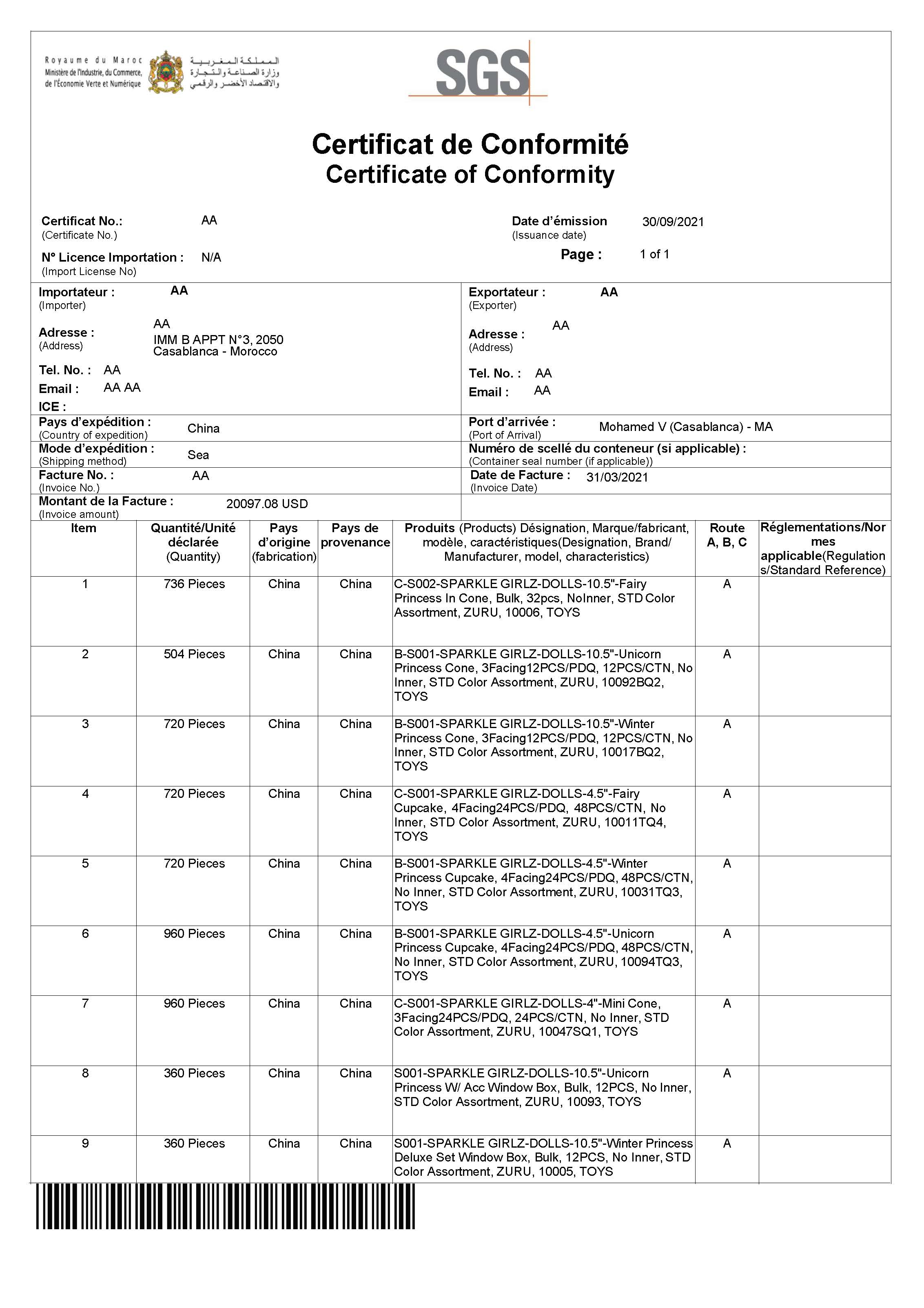
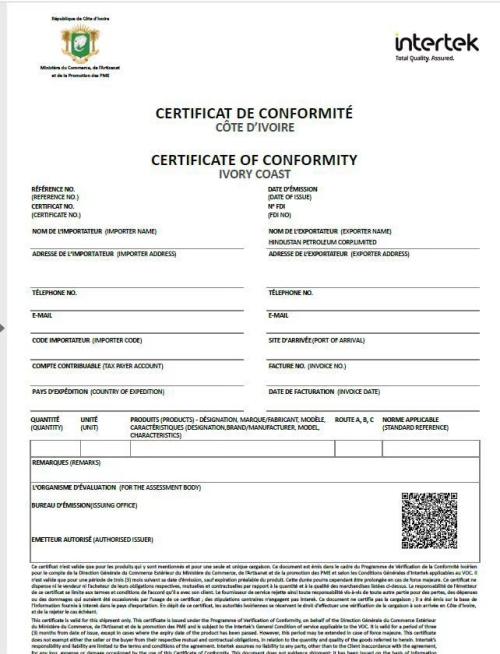
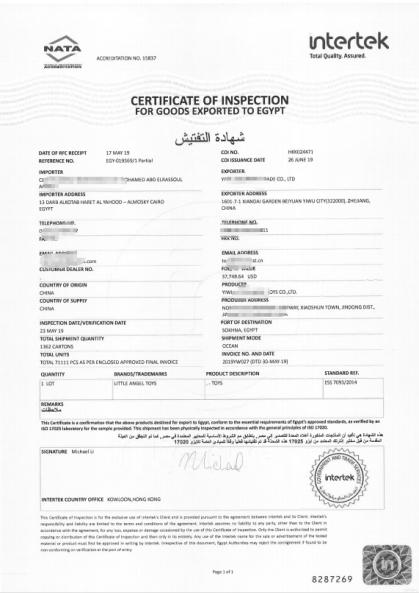
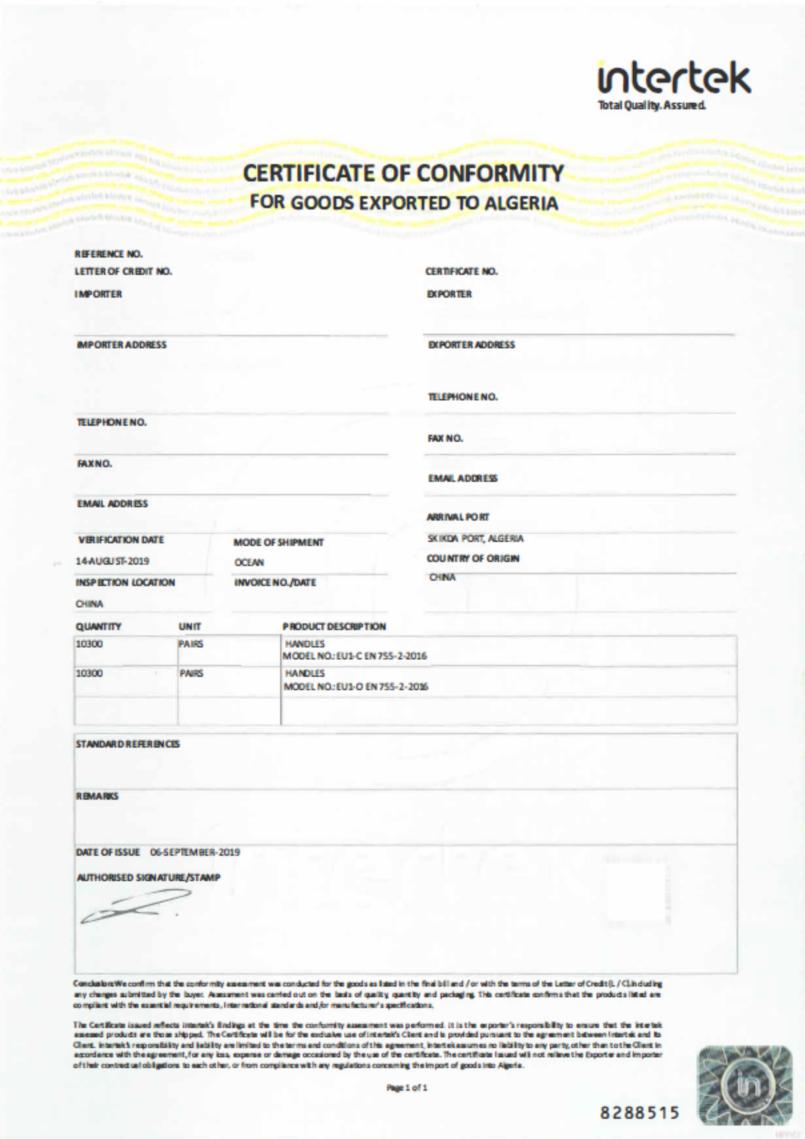
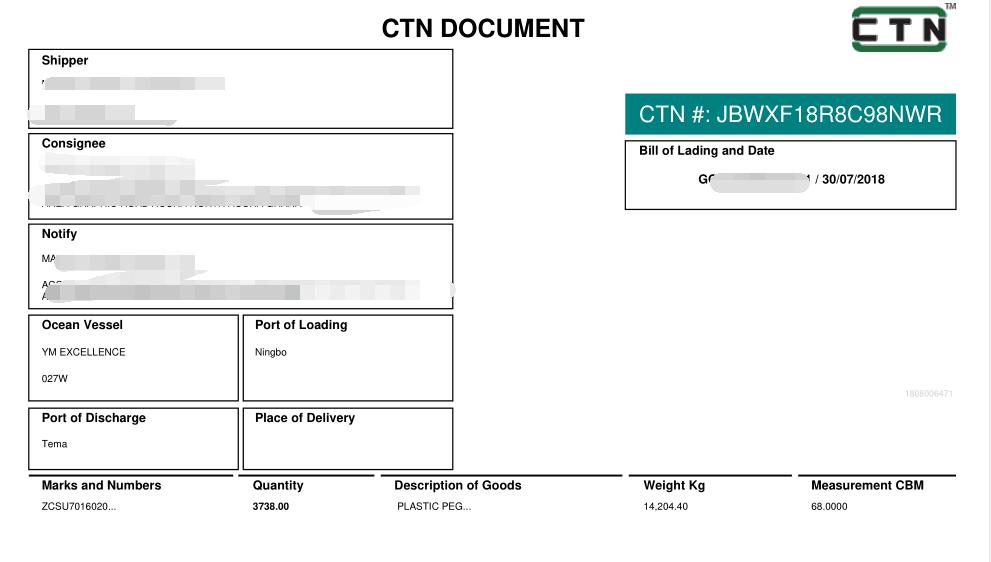
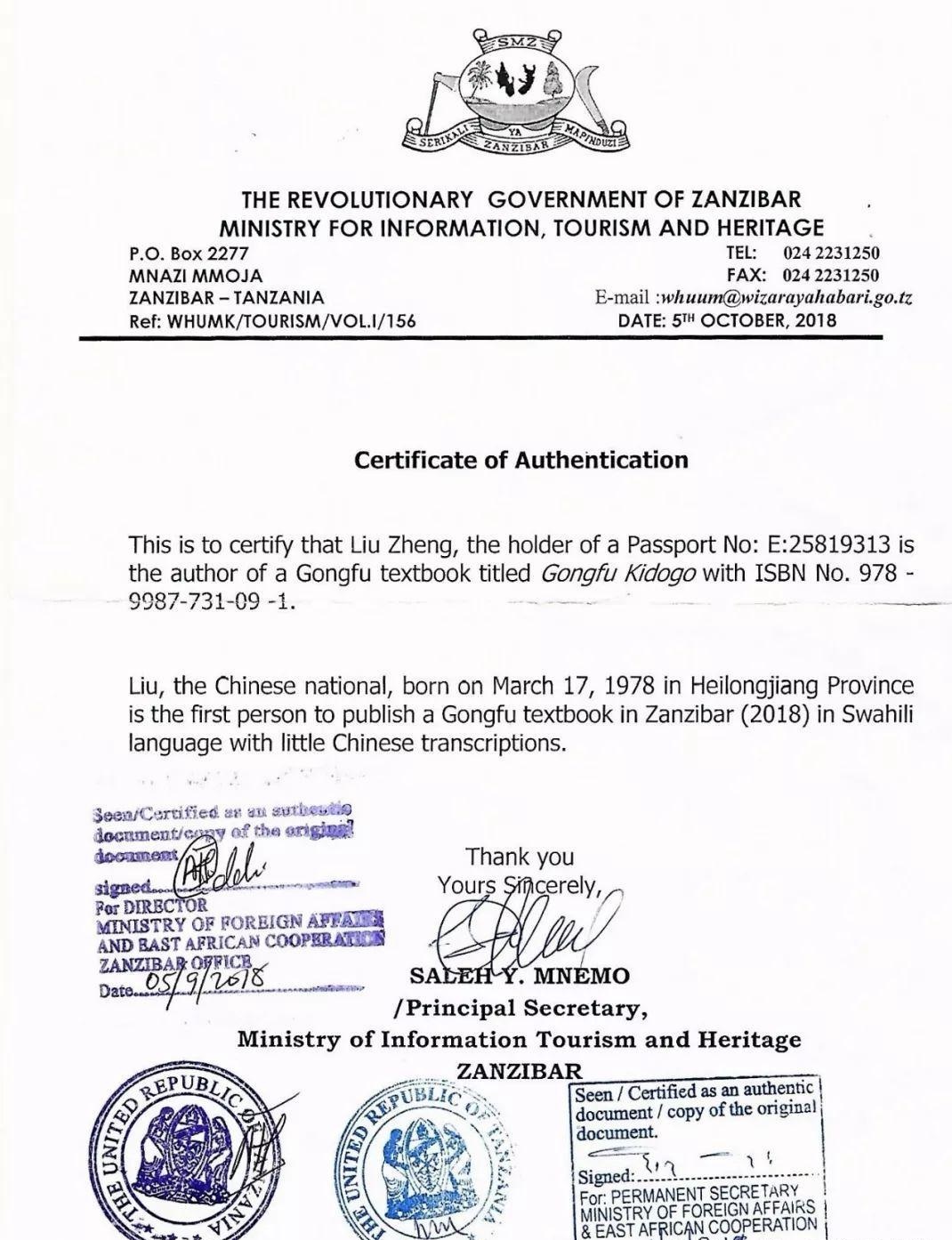
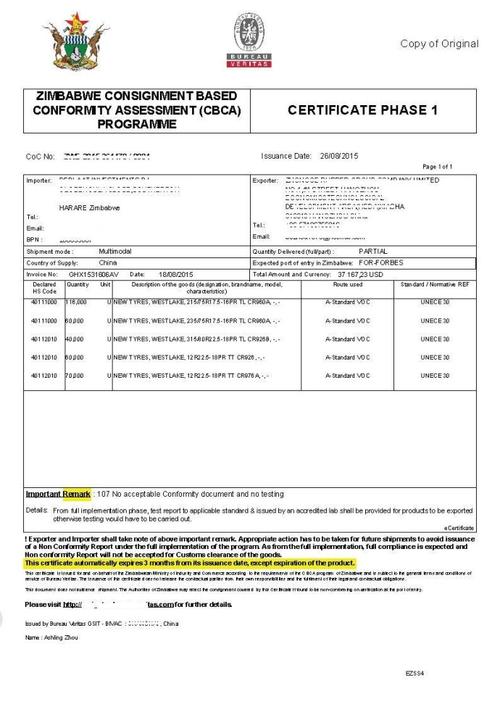

 scan
scan scan
scan
